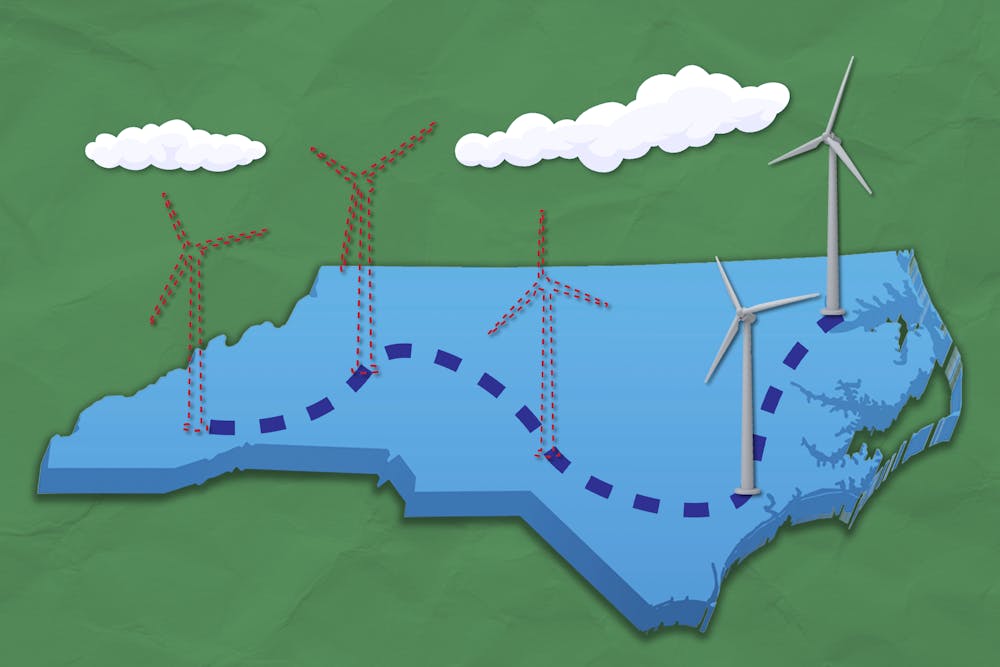North Carolina's second wind energy project opened in Chowan County this July.
The new wind energy farm, created under the Timbermill Wind project, is a $300 to $400 million investment to the Chowan County area, North Carolina Sustainable Energy Association Executive Director Matt Abele said.
North Carolina currently imports all of its fossil fuels, which means that the local production of wind energy benefits the state and fuels the local economy, Chapel Hill Town Council member Melissa McCullough said.
“[Timbermill Wind] proves to the rest of the state that this is a productive and good outcome project that we should duplicate wherever we can,” McCullough said.
According to Abele, the Chowan County project also creates benefits for local landowners. Landowners received contracts that allow their property to be leased at a higher value, since it is being leased out for the purpose of clean energy generation in addition to farming.
Wind energy farms also allow farmers the opportunity to gain stable, additional income from the lease payments, while continuing to harvest the crops on the ground, he said. Abele added that predictable income is necessary to farmers considering North Carolina’s unpredictable and severe weather that impacts crops significantly.
Apex Clean Energy, the energy supplier of this project, is now the largest taxpayer in Chowan County, meaning that they bring a significant amount of new tax revenue to invest in public goods and services such as first responders, schools and infrastructure, Abele said. According to the Apex Clean Energy website, the project will provide $33 million in tax revenue in Chowan County.
Wind energy in North Carolina
Luis Martinez, the regional director of climate and energy in the Southeast at the Natural Resources Defense Council, said the shortage of wind energy projects in North Carolina is caused by political limits that arose in 2018, when the state senate issued a moratorium — or suspension — on the issuance of permits for new wind energy projects.




